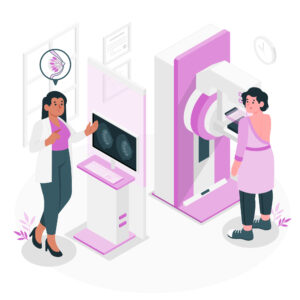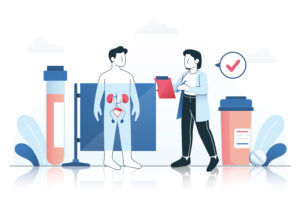Understanding the Causes of Cancer in Young Adults
The causes of cancer in young adults are multifaceted and complex. While some factors, such as genetic predisposition, are beyond our control, there are several lifestyle and environmental elements that may contribute to the rise in cancer rates among this age group.
One of the primary drivers is the increasing prevalence of unhealthy behaviors, such as poor dietary choices, physical inactivity, and excessive alcohol consumption. These lifestyle factors can significantly increase the risk of developing certain types of cancer, including colorectal, breast, and lung cancer.
Exposure to environmental toxins, including air pollution, pesticides, and certain chemicals, increases the risk of cancer in young adults. The impact of these environmental factors is particularly concerning, as young adults are often more vulnerable to their effects.
Common Types of Cancer Affecting Young Adults

The most common types of cancer affecting young adults include:
- Breast cancer
- Thyroid cancer
- Melanoma
- Testicular cancer
- Leukemia
- Lymphoma
- Colorectal cancer
These cancers can have a devastating impact on the lives of young adults, affecting their physical, emotional, and social well-being. Treating cancer in this population requires a deep understanding of their unique challenges, making it crucial to tailor our prevention and treatment strategies accordingly.
Factors Contributing to the Increase in Cancer Rates
Several factors have been identified as contributors to the rise in cancer rates among young adults. These include:
- Sedentary Lifestyle: Prolonged screen time and reduced physical activity increase the risk of certain types of cancer, highlighting the impact of sedentary behavior.
- Obesity and Metabolic Disorders: The growing obesity epidemic and the associated metabolic disorders, such as type 2 diabetes, have been shown to increase the risk of various cancer types.
- Tobacco and Substance Use: Smoking, vaping, and the use of other tobacco products, as well as the abuse of alcohol and illicit drugs, can significantly increase the risk of cancer development.
- Reproductive and Hormonal Factors: Changes in reproductive patterns, such as delayed childbearing and the use of hormonal contraceptives, may contribute to the rise in certain hormone-related cancers.
- Environmental Exposures: Exposure to environmental pollutants, including air pollution, pesticides, and industrial chemicals, has been linked to an increased risk of cancer in young adults.
- Genetic Predisposition: Certain genetic factors and inherited mutations can increase the risk of developing certain types of cancer, particularly in young adults.
Understanding these contributing factors is crucial in developing targeted prevention and early detection strategies to address the rising cancer rates among this population.
The Role of Lifestyle Choices in Cancer Prevention
While some factors contributing to cancer in young adults are beyond our control, there are several lifestyle choices that can play a significant role in cancer prevention. By adopting healthy habits, young adults can take proactive steps to reduce their risk of developing cancer.

- Maintaining a Healthy Diet: Consuming a diet rich in fruits, vegetables, whole grains, and lean proteins can help lower the risk of certain types of cancer. Avoiding processed and high-calorie foods, as well as limiting alcohol intake, can also be beneficial.
- Engaging in Regular Physical Activity: Regular physical activity, such as aerobic exercise and strength training, has been shown to reduce the risk of various cancers, including breast and colon cancer.
- Avoiding Tobacco and Substance Use: Quitting smoking, vaping, and the use of other tobacco products, as well as limiting alcohol consumption, can significantly decrease the risk of developing cancer.
- Practicing Sun Safety: Protecting the skin from harmful UV radiation, through the use of sunscreen, protective clothing, and avoiding excessive sun exposure, can lower the risk of developing skin cancer, including melanoma.
- Maintaining a Healthy Weight: Achieving and maintaining a healthy body weight can help reduce the risk of obesity-related cancers, such as breast, colon, and endometrial cancer.
By incorporating these healthy lifestyle choices into their daily routines, young adults can take an active role in reducing their cancer risk and promoting overall well-being.
Early Detection and Screening for Young Adults
Early detection and regular screening are crucial in the fight against cancer, especially for young adults. While certain screening guidelines may differ from those for older populations, it’s essential that young adults take proactive steps to monitor their health and seek timely medical attention.
- Breast Self-Exams: Young women should be encouraged to perform regular breast self-exams to detect any abnormal changes or lumps that may indicate the presence of breast cancer.
- Skin Examinations: Regular skin examinations, either self-conducted or by a healthcare professional, can help identify the early signs of skin cancer, including melanoma.
- Testicular Exams: Young men should be encouraged to perform regular self-examinations of their testicles to detect any unusual lumps or changes that may be indicative of testicular cancer.
- Regular Check-ups: Routine check-ups with a healthcare provider can help identify any early signs of cancer or underlying health conditions that may increase the risk of cancer development.
- Genetic Counseling: For individuals with a family history of certain types of cancer, genetic counseling and testing can help identify any inherited genetic mutations that may increase their cancer risk.
By promoting awareness and encouraging young adults to engage in regular screening and early detection practices, we can significantly improve the chances of early diagnosis and successful treatment outcomes.
Research and Advancements in Cancer Treatment for Young Adults
Ongoing research and advancements in cancer treatment have the potential to significantly improve outcomes for young adults with cancer. By investing in targeted research and fostering collaborative efforts, we can unlock new frontiers in cancer prevention, early detection, and personalized treatment approaches.

- Genomic and Molecular Profiling: Leveraging the latest advancements in genomic and molecular profiling can help identify specific genetic and molecular markers that may be driving cancer development in young adults. Researchers can use this information to develop more targeted and effective treatment strategies.
- Immunotherapy and Targeted Therapies: Innovative immunotherapy and targeted therapy approaches, which harness the body’s immune system or target specific molecular pathways, have shown promising results in the treatment of various cancer types affecting young adults.
- Precision Medicine: The field of precision medicine, which aims to tailor treatment based on an individual’s unique genetic and molecular profile, holds great promise for young adults with cancer, allowing for more personalized and effective care.
- Survivorship and Quality of Life: Research focused on improving the long-term quality of life and survivorship of young adults with cancer, addressing issues such as fertility preservation, cognitive function, and psychological well-being, is crucial in ensuring holistic and comprehensive care.
- Collaborative Research Efforts: Fostering collaborative research initiatives, both nationally and internationally, can help accelerate the pace of discovery and ensure that the unique needs and challenges of young adults with cancer are at the forefront of the research agenda.
By continuing to invest in and support cutting-edge research in cancer treatment for young adults, we can unlock new possibilities for early detection, improved outcomes, and enhanced quality of life for those affected by this disease.
Conclusion
The alarming surge in cancer rates among young adults is a pressing public health concern that demands our immediate attention. Understanding the underlying causes, promoting early detection and prevention, providing comprehensive support, and driving research and advocacy efforts empower young adults to lead healthy, cancer-free lives.


